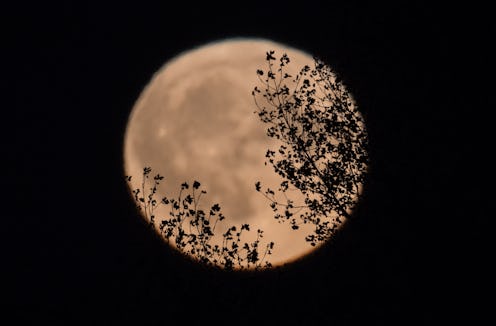Life
The Winter Solstice Might Actually Make You Feel Happier

When you're a sensitive person, it seems like everything has the power to affect your mood. The alignment of the stars, the direction of the wind, the lighting, and the distance from the moon — they all influence the way you feel. So, if you're merely wondering if the winter solstice is going to affect your mood and tend to be a sensitive person, it likely will. On Thursday, Dec. 21, the winter solstice will arrive — in other words, the sun will be directly over the Tropic of Capricorn, so we'll experience the shortest day of the year. With less light than any day of the year and some intense winter weather to boot, you're probably pretty worried about how you're going to feel. But the good news is, winter solstice is actually going to contribute to you feeling happier in the long run!
One minute less of daylight doesn't actually make the day feel any shorter, and if you're having a busy day at work or have made plans for your evening, you'd likely never notice the winter solstice. By now, you're already pretty used to the sky turning grey by 4:15 p.m., so that one minute less in the day isn't going to shake you. But if over the last few weeks you've been feeling a gradual loss of energy, a heaviness, or an irritable mood that you can't shake, it might be something else. While most of us tend to suffer from a basic case of winter blues due to unfriendly weather, a lack of vitamin D, and/or holiday-related stressors, some people struggle with SAD, or seasonal affective disorder. The psychological disorder is categorized under a sub-type of clinical depression. For people who suffer from SAD, the lack of sunlight decreases the amount of serotonin and melatonin in the brain, which affects mood and sleep patterns, and renders the winter debilitating.
If you think you might suffer from Seasonal Affective Disorder, you should talk to your doctor about it ASAP. Some of the most common symptoms include: oversleeping, change in appetite, difficulty concentrating, loss of energy, agitation, and anxiety. There actually a lot of treatment options that can help to increase serotonin levels in the brain, without prescription medication. From light therapy boxes to plant therapy to aroma therapy and exercise, there are lots of alternative remedies that might work for you.
But if you're wondering about the winter solstices effects because you'd like to be affected by it, consider this: the solstice marks the end of a darkness dip and the beginning of a lightness curve. So if you'd like to spend some time during this year's winter solstice reflecting and setting intentions to be realized by the summer's solstice, you should definitely tap into that celestial energy and go for it. Astrologists believe that as the sun moves into Capricorn, it's a good time for us to think about the way our lives are structured and our own boundaries. It might be easier for us to tap into the hard-working Capricorn way of life during the solstice, so if there's a project that you'd like to put your energy towards, do some mediation on Dec. 21 and start planning your next move. The alignment of the celestial bodies might help you get into gear.
TL;DR? The winter solstice isn't going to knock you off your feet, but if you already feel like the winter has taken a toll on your mood, you might want to talk to a doctor about Seasonal Affective Disorder and whether or not you might benefit from treatment. No matter how you regard celestial events, it's always a good time to check in with yourself, consider your intentions and objectives and make sure that you're living your best life. So even though you're going to lose a minute on Dec. 21, try to find minute to reflect on the year behind, the year ahead, and ask yourself how you're doing.